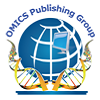Our Group organises 3000+ Global Conferenceseries Events every year across USA, Europe & Asia with support from 1000 more scientific Societies and Publishes 700+ Open Access Journals which contains over 50000 eminent personalities, reputed scientists as editorial board members.
Open Access Journals gaining more Readers and Citations
700 Journals and 15,000,000 Readers Each Journal is getting 25,000+ Readers
Indexed In
- Google Scholar
- RefSeek
- Hamdard University
Useful Links
Share This Page
Biophysical characterization of the recellularization effect: Restoring functional properties of ECM based constructs towared the native state
Udi Sarig1, Hadar Sarig1, Au-Yeu Chi Ting Gigi1, Boey Yin Chiang Freddy1, Marcelle Machluf1,2 and Subbu S Venkatraman1
Abstract
Functional tissue engineering��? (FTE) ��? a tissue engineering (TE) subfield ��? employs various cellularized biomaterial scaffolds for the ��?engineering of load bearing tissues�. To generate more biomimetic materials, various extracellular matrix (ECM) scaffolds were isolated through decellularization. However, decellularization represents a trade-off between excessive ECM damage and preservation of ECM ultrastructure and bioactivity. Indeed, vast research has identified biophysical effects of the ECM on cell survival, proliferation, migration, organization, differentiation and maturation, with clear implications for FTE. Surprisingly though, no study to date, to the best of our knowledge, provided clear methods and understanding on the reciprocal effects of cellularization on the cellularized ECM scaffolds biophysical properties, under physiological-like conditions. We hypothesized that by re-cellularizing porcine ventricular ECM (pvECM, serving as a model scaffold) some of the original myocardial tissue biophysical properties can be restored, concerning scaffolds surface and bulk modifications consequent to cellularization. We therefore performed a systematic biophysical assessment of pcECM scaffolds seeded with human mesenchymal stem cells, a common multipotent cell source in cardiac regenerative medicine. The results obtained were compared to acellular pcECM and native ventricular tissue serving as negative and positive controls, respectively. We report a new type of FTE study in which cell interactions with a composite-scaffold were evaluated from the perspective of their contribution to the construct surface (FTIR, WET-SEM) and bulk (DSC, TGA, uni-and bi-axial mechanical testing) biophysical properties. Such an approach yields important methodologies, understanding, and data serving both as a reference as well as possible ��?design criteria��? for future studies in FTE.Biography
Udi Sarig has completed his PhD from the Technion Israel Institute of Technology (IIT) and is currently a Postdoctoral fellow at the Nanyang Technological University (NTU) in Singapore. He is a co-author of more than 20 publications in international recognized peer reviewed journals and scientific conferences, and is currently serving as a group leader in the Singapore Technion Alliance for Research and Technology (START), under the Campus for Research Excellence and Technological Enterprise (CREATE) program: The regenerative medicine initiative in cardiac restoration therapy.

 Spanish
Spanish  Chinese
Chinese  Russian
Russian  German
German  French
French  Japanese
Japanese  Portuguese
Portuguese  Hindi
Hindi